Allen said that last night he dreamed he was an old mattress with broken springs and that the dogs were jumping on him and he couldn't move or do anything about it.
I said, "You did not!"
He said, "I did, too!"
So apparently he did dream it.
Tuesday, October 23, 2007
Sunday, October 21, 2007
Saturday, October 20, 2007
A dream
Last night I had the nicest dream about a rugged, wind-swept, and lonely beach. Allen and I were walking along this beach, looking for the best place to put our tent for the night. It was evening and I carried a lantern, which was not lit. We used only the stars for light. We set up the tent and then I turned on the lantern. It was only then that I saw little pockets of snow on the ground. The effect of the snow on the rocky shore, along with the ocean sounds just beyond, was beautiful.
Friday, October 19, 2007
Oyster River
There is a movement toward spiritual unity in Theodore Roethke's "Meditation at Oyster River."
There is a tension in the poem between disunity/unity, and there also is a fear of death being expressed in the poem.
The poem is Whitmanesque for me in the way opposites come together, such as here: "A twilight wind, light as a child's breath / Turning not a leaf, not a ripple. / The dew revives on the beach-grass; / The salt-soaked wood of the fire crackles; / A fish raven turns on its perch (a dead tree in the rivermouth), / Its wings catching a last glint of the reflected sunlight."
The image of twilight (endings) juxtaposed with that ofchildhood (beginnings), the fish raven (fish = infinity or God) with the dead tree. The wings of the raven catching the "last glint" of reflected sunlight.
While this juxtaposition of opposites is Whitmanesque, Roethke is not nearly so optimistic as Whitman. There is something malevolent in nature, in the life force, and life is tinged by the inevitability of death:
In the next stanza, Roethke says:
"The self persists like a dying star, / In sleep, afriad. Death's face rises afresh, / Among the shy beasts..." and then the tide comes in, "tongues of water, creeping in, quietly." This is where a transformation occurs.
I deeply appreciate: "In this hour, / In this first heaven of knowing..."We understand Roethke is reaching his "paradise," his moment of unity.
Even better are the lines: "I rise and fall, and time folds / Into a long moment; / And I hear the lichen speak, / And the ivy advance with its white lizard feet-- / On the shimmering road, / On the dusty detour."
Talk about permeable boundaries.
The last two stanzas can be contrasted to Eliot's "The Waste Land" quite neatly. Eliot's landscape is dry; Roethke's is wet, and water equals life. Roethke even says: "Water's my will, and my way, / And the spirit runs, intermittently, / In and out of the small waves, Runs with the intrepid shorebirds--"
Yet something dark remains: "How graceful the small before danger!"
There is a tension in the poem between disunity/unity, and there also is a fear of death being expressed in the poem.
The poem is Whitmanesque for me in the way opposites come together, such as here: "A twilight wind, light as a child's breath / Turning not a leaf, not a ripple. / The dew revives on the beach-grass; / The salt-soaked wood of the fire crackles; / A fish raven turns on its perch (a dead tree in the rivermouth), / Its wings catching a last glint of the reflected sunlight."
The image of twilight (endings) juxtaposed with that ofchildhood (beginnings), the fish raven (fish = infinity or God) with the dead tree. The wings of the raven catching the "last glint" of reflected sunlight.
While this juxtaposition of opposites is Whitmanesque, Roethke is not nearly so optimistic as Whitman. There is something malevolent in nature, in the life force, and life is tinged by the inevitability of death:
In the next stanza, Roethke says:
"The self persists like a dying star, / In sleep, afriad. Death's face rises afresh, / Among the shy beasts..." and then the tide comes in, "tongues of water, creeping in, quietly." This is where a transformation occurs.
I deeply appreciate: "In this hour, / In this first heaven of knowing..."We understand Roethke is reaching his "paradise," his moment of unity.
Even better are the lines: "I rise and fall, and time folds / Into a long moment; / And I hear the lichen speak, / And the ivy advance with its white lizard feet-- / On the shimmering road, / On the dusty detour."
Talk about permeable boundaries.
The last two stanzas can be contrasted to Eliot's "The Waste Land" quite neatly. Eliot's landscape is dry; Roethke's is wet, and water equals life. Roethke even says: "Water's my will, and my way, / And the spirit runs, intermittently, / In and out of the small waves, Runs with the intrepid shorebirds--"
Yet something dark remains: "How graceful the small before danger!"
Thursday, October 18, 2007
Something more...
"Not the boring moments, the small gratifications, but the struggle where we become something more than shadows."--Theodore Roethke, Straw for the Fire
Student surprise
I was surprised by the level of discussion that happened in my two intro. to literature classes today. We were comparing and contrasting Ovid's Icarus telling to Auden's "Musee Des Beaux Arts." We had also recently watched The Bridge, the documentary about people who committed suicide by jumping off the Golden Gate Bridge (students also read "Jumpers" from The New Yorker.)
These are late afternoon/evening classes (4:30 and 6:00). I've taught classes at the time for several years. Students tend to be tired after a long day or sleepy because they've just eaten supper. But all semester the students have been awake and aware.
Today, given the subject matter (suicide), I expected nervousness and silence, but they were talkative and engaged. I was proud of them.
These are late afternoon/evening classes (4:30 and 6:00). I've taught classes at the time for several years. Students tend to be tired after a long day or sleepy because they've just eaten supper. But all semester the students have been awake and aware.
Today, given the subject matter (suicide), I expected nervousness and silence, but they were talkative and engaged. I was proud of them.
Labels:
Auden,
New Yorker,
suicide,
teaching,
The Bridge
Wednesday, October 17, 2007
Inside My Head With Bach
Right now I am listening to Bach's Cello Suite #2 in D Minor.
It takes me to a place outside myself. I am walking down a long, wide hallway. There is no end. I am wearing dressy shoes, slick-soled, like the kind I wore as a child. The shoes click against the shiny floor. The sound echoes in the vast space.
On the walls are beautiful paintings.
I don't have anywhere else to go, nothing else to do.
I will walk here all day.
It takes me to a place outside myself. I am walking down a long, wide hallway. There is no end. I am wearing dressy shoes, slick-soled, like the kind I wore as a child. The shoes click against the shiny floor. The sound echoes in the vast space.
On the walls are beautiful paintings.
I don't have anywhere else to go, nothing else to do.
I will walk here all day.
Gathering Wood
We bought our first batch of wood for Winter today. We are late doing this and are lucky to have found some. Allen came home with the wood at around 5:30. I went out and kept him company a while as he stacked. Inside, supper was cooking in the oven: one of my infamous casseroles made from whatever I could find in the house. It felt like when we were first married.
All that wood. Preparation for rough and raw days ahead.
All that possiblity.
All that wood. Preparation for rough and raw days ahead.
All that possiblity.
I Can Be Quite Dense
I can be quite dense when it comes to understanding some authors.
Emily Dickinson is an author I have not been able to get close to. However, I am ever creeping toward some discovery. I am slowly developing a relationship with her.
I have been doing some reading lately about how her mind shifted from Puritanism to Transcendentalism.
According to Transcendentalism, we each have an "Over-soul," which is the means by which we are made one with every other thing. I am beginning to understand how Emily, perhaps, longed for spiritual nourishment but was unwilling to seek this within the confines of Puritanism. Rather, though her poetry, she sought to discover her "self."
In other words, the Punitan God is no longer the center of her world but rather something "unknown," something outside of what her mind could grasp:
I dwell in Possibility--
A fairer House than Prose--
More numerous of Windows--
Superior--for doors--
Of Chambers as the Cedars--
Impregnable of Eye--
And for an everlasting Roof
The Gambrels of the Sky--
Of Visitors--the fairest--
For Occupation--This--
The spreading wide my narrow Hands
To gather Paradise--
Here she goes beyond doctrine, beyond certainties: she moves toward essences. Possibility is poetry. Through the imagination, and alone, she can find Paradise (knowledge of self).
My reading and thinking have lately brought me closer to Emily Dickinson. I will continue to work at this.
PS. Over-soul is an idea discussed by Emerson:
"The Supreme Critic on the errors of the past and the present, and the only prophet of that which must be, is that great nature in which we rest, as the earth lies in the soft arms of the atmosphere; that Unity, that Over-soul, within which every man's particular being is contained and made one with all other; that common heart."
and ...
"We live in succession, in division, in parts, in particles. Meantime within man is the soul of the whole; the wise silence; the universal beauty, to which every part and particle is equally related, the eternal ONE. And this deep power in which we exist and whose beatitude is all accessible to us, is not only self-sufficing and perfect in every hour, but the act of seeing and the thing seen, the seer and the spectacle, the subject and the object, are one. We see the world piece by piece, as the sun, the moon, the animal, the tree; but the whole, of which these are shining parts, is the soul."
Emily Dickinson is an author I have not been able to get close to. However, I am ever creeping toward some discovery. I am slowly developing a relationship with her.
I have been doing some reading lately about how her mind shifted from Puritanism to Transcendentalism.
According to Transcendentalism, we each have an "Over-soul," which is the means by which we are made one with every other thing. I am beginning to understand how Emily, perhaps, longed for spiritual nourishment but was unwilling to seek this within the confines of Puritanism. Rather, though her poetry, she sought to discover her "self."
In other words, the Punitan God is no longer the center of her world but rather something "unknown," something outside of what her mind could grasp:
I dwell in Possibility--
A fairer House than Prose--
More numerous of Windows--
Superior--for doors--
Of Chambers as the Cedars--
Impregnable of Eye--
And for an everlasting Roof
The Gambrels of the Sky--
Of Visitors--the fairest--
For Occupation--This--
The spreading wide my narrow Hands
To gather Paradise--
Here she goes beyond doctrine, beyond certainties: she moves toward essences. Possibility is poetry. Through the imagination, and alone, she can find Paradise (knowledge of self).
My reading and thinking have lately brought me closer to Emily Dickinson. I will continue to work at this.
PS. Over-soul is an idea discussed by Emerson:
"The Supreme Critic on the errors of the past and the present, and the only prophet of that which must be, is that great nature in which we rest, as the earth lies in the soft arms of the atmosphere; that Unity, that Over-soul, within which every man's particular being is contained and made one with all other; that common heart."
and ...
"We live in succession, in division, in parts, in particles. Meantime within man is the soul of the whole; the wise silence; the universal beauty, to which every part and particle is equally related, the eternal ONE. And this deep power in which we exist and whose beatitude is all accessible to us, is not only self-sufficing and perfect in every hour, but the act of seeing and the thing seen, the seer and the spectacle, the subject and the object, are one. We see the world piece by piece, as the sun, the moon, the animal, the tree; but the whole, of which these are shining parts, is the soul."
Labels:
Emerson,
Emily Dickinson,
Transcendentalism
Saturday, October 06, 2007
The Shining/Hour of the Wolf
I've been on a Ingmar Bergman jag the last few days.
What I like about Bergman is that he doesn't tell us how to react or feel but leaves us to make our own judgments.
The DVDs that I purchased have interviews with Bergman on them, and from what I can gather, Bergman went through a lot of struggles personally and artistically. There are interviews with Liv Ullmann, also. Ullmann starred in several Bergman films and also was romantically involved with him. She had a child by him.
One of the things she says in her interview about The Hour of the Wolf is that she should have listened to her character, Alma. If she had, she might not have spent so much time trying to work it out with Bergman, trying to live with a man who had so many issues he was trying to work out.
I thought his comment was telling.
Another thing Ullmann talks about is that when one lives with a person who is disintegrating, one runs the danger of being prone to the same forces as the disintegrating person. In other words, if you live with a disturbed person, you can take on qualities of being a disturbed person yourself. The Hour of the Wolf, like so much great drama, exaggerates the crisis, and to great effect, I think.
King plays around with the idea a bit more, gives the Torrance child a special ability to see into another reality. So the situations in the two films aren't parallel right down the line, but the caparisons between the two are pretty fascinating.
Another comparison: in both The Shining and The Hour of the Wolf, the wives are enablers. They believe that if they love their husbands enough, help them enough, support them enough, then things will turn out fine in the end. This is a dangerous assumption.
Narcissism in an artist is dangerous because it kills the art he or she is trying to create. I think it's interesting that in both works, the artist either kills or attempts to kill a child. What does the child represent? Perhaps his creative effort? It's hard to say, but intriguing to think about.
*****Subsequent thoughts*****
The Shining is a novel by Stephen King and was also made into a movie (actually, two movie versions of the novel have been made). The Hour of the Wolf is a film by Ingmar Bergman.
Both The Shining and The Hour of the Wolf are about artists. In both cases, the artist falls prey to inner chaos, causing complete personality disintegration. In The Shining, Jack Torrance takes a job as a caretaker at the Overlook Hotel. He wants quiet time in order to devote to writing his novel. He is also attempting to escape personal and social problems stemming from an incident of abusing his son.
In The Hour of the Wolf, Johan Borg goes to a remote island in order to paint. He is also escaping elements of his past, including a love affair which turned out badly. Both artists live in seclusion with their wives and slowly go mad. There are also erotically charged elements to both works. For instance, in The Shining, Jack finds himself seduced by a woman who at first appears to be beautiful and young, but who shifts into a hag resembling a rotting corpse.
In The Hour of the Wolf, Johan finds himself in an embrace with an old woman and, later, confronts his former lover who at first poses as a corpse.
I believe the artist must go through a death embrace in order to create. The ego must dissolve and part of the consciousness of the artist must die. But there is a danger, too, in losing the ego all together. Somehow, a balance must be struck within the artist if he or she is going to survive the creative process in tact.
Ingmar Bergman said in a late-life interview that he felt as though he was always only a few steps from chaos. His fear of losing control is dealt with in several of his films, including The Hour of the Wolf.
All artists, to some degree, recognize the danger of what they do. In order to create, the artist has to draw from the dangerous well of the unconscious. There be dragons.
The passion for creating art can be destructive as well as creative. Both The Shining and The Hour of the Wolf show what happens when the destructive quality of passion is allowed to take over. The artist becomes a prisoner of the imagination, just as Jack Torrance becomes a prisoner of the Overlook and as Johan Borg becomes a prisoner to his humiliations.
Both artists "die" because they cannot reconcile the dark forces of the imagination with Apollo, the light of reason. Indeed, in The Hour of the Wolf, Bergman touches on the idea of darkness and light by integrating elements of Mozart's The Magic Flute into the film. Jack Torrance quite literally freezes to death. Apollo, the Sun god, is no where in evidence. Torrance is slain by the dark forces within.
Both works, too, feature "castles" which are labyrinthine in structure. The Overlook Hotel is a kind of huge, sprawling castle. In The Hour of the Wolf, Johan visits a castle where strange and horrific things happen. In both cases, the castle represents the sprawling and confused mind of the artist.
Both works are instructive to artists and fascinating to me, especially as I began to compare them. I know there are some artists who won't relate to this idea of the dark forces within, but many artists will.
What I like about Bergman is that he doesn't tell us how to react or feel but leaves us to make our own judgments.
The DVDs that I purchased have interviews with Bergman on them, and from what I can gather, Bergman went through a lot of struggles personally and artistically. There are interviews with Liv Ullmann, also. Ullmann starred in several Bergman films and also was romantically involved with him. She had a child by him.
One of the things she says in her interview about The Hour of the Wolf is that she should have listened to her character, Alma. If she had, she might not have spent so much time trying to work it out with Bergman, trying to live with a man who had so many issues he was trying to work out.
I thought his comment was telling.
Another thing Ullmann talks about is that when one lives with a person who is disintegrating, one runs the danger of being prone to the same forces as the disintegrating person. In other words, if you live with a disturbed person, you can take on qualities of being a disturbed person yourself. The Hour of the Wolf, like so much great drama, exaggerates the crisis, and to great effect, I think.
King plays around with the idea a bit more, gives the Torrance child a special ability to see into another reality. So the situations in the two films aren't parallel right down the line, but the caparisons between the two are pretty fascinating.
Another comparison: in both The Shining and The Hour of the Wolf, the wives are enablers. They believe that if they love their husbands enough, help them enough, support them enough, then things will turn out fine in the end. This is a dangerous assumption.
Narcissism in an artist is dangerous because it kills the art he or she is trying to create. I think it's interesting that in both works, the artist either kills or attempts to kill a child. What does the child represent? Perhaps his creative effort? It's hard to say, but intriguing to think about.
*****Subsequent thoughts*****
The Shining is a novel by Stephen King and was also made into a movie (actually, two movie versions of the novel have been made). The Hour of the Wolf is a film by Ingmar Bergman.
Both The Shining and The Hour of the Wolf are about artists. In both cases, the artist falls prey to inner chaos, causing complete personality disintegration. In The Shining, Jack Torrance takes a job as a caretaker at the Overlook Hotel. He wants quiet time in order to devote to writing his novel. He is also attempting to escape personal and social problems stemming from an incident of abusing his son.
In The Hour of the Wolf, Johan Borg goes to a remote island in order to paint. He is also escaping elements of his past, including a love affair which turned out badly. Both artists live in seclusion with their wives and slowly go mad. There are also erotically charged elements to both works. For instance, in The Shining, Jack finds himself seduced by a woman who at first appears to be beautiful and young, but who shifts into a hag resembling a rotting corpse.
In The Hour of the Wolf, Johan finds himself in an embrace with an old woman and, later, confronts his former lover who at first poses as a corpse.
I believe the artist must go through a death embrace in order to create. The ego must dissolve and part of the consciousness of the artist must die. But there is a danger, too, in losing the ego all together. Somehow, a balance must be struck within the artist if he or she is going to survive the creative process in tact.
Ingmar Bergman said in a late-life interview that he felt as though he was always only a few steps from chaos. His fear of losing control is dealt with in several of his films, including The Hour of the Wolf.
All artists, to some degree, recognize the danger of what they do. In order to create, the artist has to draw from the dangerous well of the unconscious. There be dragons.
The passion for creating art can be destructive as well as creative. Both The Shining and The Hour of the Wolf show what happens when the destructive quality of passion is allowed to take over. The artist becomes a prisoner of the imagination, just as Jack Torrance becomes a prisoner of the Overlook and as Johan Borg becomes a prisoner to his humiliations.
Both artists "die" because they cannot reconcile the dark forces of the imagination with Apollo, the light of reason. Indeed, in The Hour of the Wolf, Bergman touches on the idea of darkness and light by integrating elements of Mozart's The Magic Flute into the film. Jack Torrance quite literally freezes to death. Apollo, the Sun god, is no where in evidence. Torrance is slain by the dark forces within.
Both works, too, feature "castles" which are labyrinthine in structure. The Overlook Hotel is a kind of huge, sprawling castle. In The Hour of the Wolf, Johan visits a castle where strange and horrific things happen. In both cases, the castle represents the sprawling and confused mind of the artist.
Both works are instructive to artists and fascinating to me, especially as I began to compare them. I know there are some artists who won't relate to this idea of the dark forces within, but many artists will.
Labels:
Ingmar Bergman,
the artist,
The Shining,
Writing
Monday, October 01, 2007
Dry Grass
Allen and I took a Sunday walk on some state land near our house. Part of the path was through trees. Big brown leaves crunched loudly under our feet. Then the path wound through tall brown grass, higher than our heads, that tall. The path was soft green grass.
It was quiet except for the tall grass.
The tall grass made a dry, rasping sound in the wind.
It was quiet except for the tall grass.
The tall grass made a dry, rasping sound in the wind.
Subscribe to:
Comments (Atom)
Pages
Dreaming
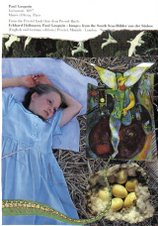
About Me

- Theresa Williams
- Northwest Ohio, United States
- "I was no better than dust, yet you cannot replace me. . . Take the soft dust in your hand--does it stir: does it sing? Has it lips and a heart? Does it open its eyes to the sun? Does it run, does it dream, does it burn with a secret, or tremble In terror of death? Or ache with tremendous decisions?. . ." --Conrad Aiken
Followers
Facebook Badge
Search This Blog
Favorite Lines
My Website
Epistle, by Archibald MacLeish
Visit my Channel at YouTube
Great Artists
www.flickr.com
This is a Flickr badge showing public photos from theresarrt7. Make your own badge here.
Fave Painting: Eden
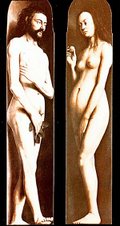
Fave Painting: The Three Ages of Man and Death

by Albrecht Dürer
From the First Chapter
The Secret of Hurricanes : That article in the Waterville Scout said it was Shake- spearean, all that fatalism that guides the Kennedys' lives. The likelihood of untimely death. Recently, another one died in his prime, John-John in an airplane. Not long before that, Bobby's boy. While playing football at high speeds on snow skis. Those Kennedys take some crazy chances. I prefer my own easy ways. Which isn't to say my life hasn't been Shake-spearean. By the time I was sixteen, my life was like the darkened stage at the end of Hamlet or Macbeth. All littered with corpses and treachery.
My Original Artwork: Triptych
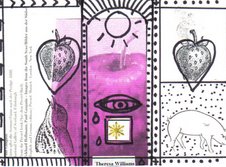
Wishing
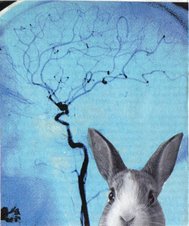
Little Deer
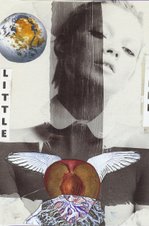
Transformation
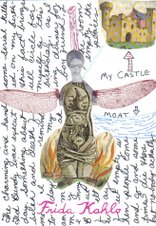
Looking Forward, Looking Back
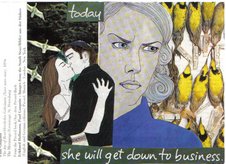
CURRENT MOON
Labels
- adolescence (1)
- Airstream (7)
- Alain de Botton (1)
- all nighters (2)
- Allen (1)
- altars (1)
- Angelus Silesius (2)
- animals (1)
- Annie Dillard (1)
- Antonio Machado (2)
- AOL Redux (1)
- April Fool (1)
- Archibald MacLeish (1)
- arts and crafts (55)
- Auden (1)
- awards (2)
- AWP (2)
- Bach (1)
- Basho (5)
- Beauty and the Beast (1)
- birthdays (1)
- blogs (5)
- boats (2)
- body (2)
- books (7)
- bookstores (1)
- Buddha (1)
- Buddha's Little Instruction Book (2)
- butterfly (4)
- buzzard (2)
- Capote (4)
- Carmel (1)
- Carson McCullers (1)
- cats (15)
- Charles Bukowski (1)
- Charles Simic (2)
- Christina Georgina Rossetti (1)
- church (2)
- confession (1)
- Conrad Aiken (1)
- cooking (5)
- crows (1)
- current events (2)
- D. H. Lawrence (3)
- death (6)
- Delmore Schwartz (4)
- detachment (1)
- dogs (7)
- domestic (3)
- dreams (21)
- Edward Munch (4)
- Edward Thomas (1)
- Eliot (3)
- Eliot's Waste Land (2)
- Emerson (2)
- Emily Dickinson (10)
- ephemera (1)
- Esalen (6)
- essay (3)
- Eugene O'Neill (3)
- Ezra Pound (1)
- F. Scott Fitzgerald (1)
- fairy tales (7)
- Fall (16)
- Famous Quotes (16)
- festivals (2)
- fire (5)
- Floreta (1)
- food (1)
- found notes etc. (1)
- found poem (2)
- fragments (86)
- Frida Kahlo (1)
- frogs-toads (4)
- Georg Trakl (1)
- gifts (1)
- Global Warming (1)
- Gluck (1)
- goats (1)
- Goodwill (1)
- Great lines of poetry (2)
- Haibun (15)
- haibun moleskine journal 2010 (2)
- Haiku (390)
- Hamlet (1)
- Hart Crane (4)
- Hayden Carruth (1)
- Henry Miller (1)
- holiday (12)
- Hyman Sobiloff (1)
- Icarus (1)
- ikkyu (5)
- Imagination (7)
- Ingmar Bergman (1)
- insect (2)
- inspiration (1)
- Issa (5)
- iTunes (1)
- Jack Kerouac (1)
- James Agee (2)
- James Dickey (5)
- James Wright (6)
- John Berryman (3)
- Joseph Campbell Meditation (2)
- journaling (1)
- Jung (1)
- Juniper Tree (1)
- Kafka (1)
- Lao Tzu (1)
- letters (1)
- light (1)
- Lorca (1)
- Lorine Niedecker (2)
- love (3)
- Lucille Clifton (1)
- Marco Polo Quarterly (1)
- Marianne Moore (1)
- Modern Poetry (14)
- moon (6)
- movies (20)
- Muriel Stuart (1)
- muse (3)
- music (8)
- Mystic (1)
- mythology (6)
- nature (3)
- New Yorker (2)
- Nietzsche (1)
- Northfork (2)
- November 12 (1)
- October (6)
- original artwork (21)
- original poem (53)
- Our Dog Buddha (6)
- Our Dog Sweet Pea (7)
- Our Yard (6)
- PAD 2009 (29)
- pad 2010 (30)
- Persephone (1)
- personal story (1)
- philosophy (1)
- Phoku (2)
- photographs (15)
- Picasso (2)
- Pilgrim at Tinker Creek (1)
- Pillow Book (5)
- Pinsky (2)
- plays (1)
- poem (11)
- poet-seeker (9)
- poet-seer (6)
- poetry (55)
- politics (1)
- poppies (2)
- presentations (1)
- Provincetown (51)
- Publications (new and forthcoming) (13)
- rain (4)
- Randall Jarrell (1)
- reading (6)
- recipes (1)
- Reciprocity (1)
- Richard Brautigan (3)
- Richard Wilbur (2)
- Rilke (5)
- river (5)
- river novel (1)
- rivers (12)
- Robert Frost (2)
- Robert Rauschenberg (1)
- Robert Sean Leonard (1)
- Robinson Jeffers (1)
- Rollo May (2)
- Rumi (1)
- Ryokan (1)
- Sexton (1)
- short stories (13)
- skeletons (2)
- sleet (1)
- snake (1)
- Snow (24)
- solitude (1)
- spider (2)
- spring (1)
- Stanley Kunitz (1)
- students (2)
- suffering (4)
- suicide (2)
- summer (20)
- Sylvia Plath (2)
- Talking Writing (1)
- Tao (3)
- teaching (32)
- television (4)
- the artist (2)
- The Bridge (3)
- The Letter Project (4)
- The Shining (1)
- Thelma and Louise (1)
- Theodore Roethke (16)
- Thomas Gospel (1)
- Thomas Hardy (1)
- toys (3)
- Transcendentalism (1)
- Trickster (2)
- Trudell (1)
- Ursula LeGuin (1)
- vacation (10)
- Vermont (6)
- Virginia Woolf (1)
- Vonnegut (2)
- Wallace Stevens (1)
- Walt Whitman (8)
- weather (7)
- website (3)
- what I'm reading (2)
- William Blake (2)
- William Butler Yeats (5)
- wind (3)
- wine (2)
- winter (24)
- wood (3)
- Writing (111)
- Zen (1)




